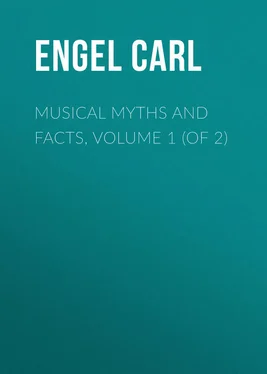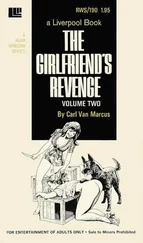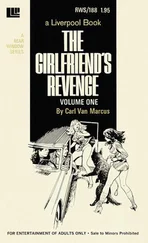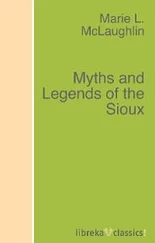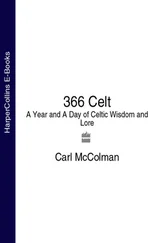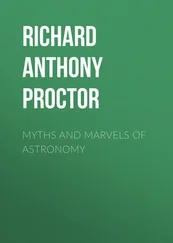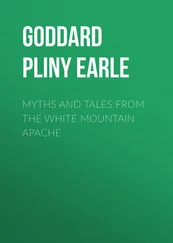Carl Engel - Musical Myths and Facts, Volume 1 (of 2)
Здесь есть возможность читать онлайн «Carl Engel - Musical Myths and Facts, Volume 1 (of 2)» — ознакомительный отрывок электронной книги совершенно бесплатно, а после прочтения отрывка купить полную версию. В некоторых случаях можно слушать аудио, скачать через торрент в формате fb2 и присутствует краткое содержание. Жанр: music_dancing, foreign_antique, foreign_prose, на английском языке. Описание произведения, (предисловие) а так же отзывы посетителей доступны на портале библиотеки ЛибКат.
- Название:Musical Myths and Facts, Volume 1 (of 2)
- Автор:
- Жанр:
- Год:неизвестен
- ISBN:нет данных
- Рейтинг книги:5 / 5. Голосов: 1
-
Избранное:Добавить в избранное
- Отзывы:
-
Ваша оценка:
- 100
- 1
- 2
- 3
- 4
- 5
Musical Myths and Facts, Volume 1 (of 2): краткое содержание, описание и аннотация
Предлагаем к чтению аннотацию, описание, краткое содержание или предисловие (зависит от того, что написал сам автор книги «Musical Myths and Facts, Volume 1 (of 2)»). Если вы не нашли необходимую информацию о книге — напишите в комментариях, мы постараемся отыскать её.
Musical Myths and Facts, Volume 1 (of 2) — читать онлайн ознакомительный отрывок
Ниже представлен текст книги, разбитый по страницам. Система сохранения места последней прочитанной страницы, позволяет с удобством читать онлайн бесплатно книгу «Musical Myths and Facts, Volume 1 (of 2)», без необходимости каждый раз заново искать на чём Вы остановились. Поставьте закладку, и сможете в любой момент перейти на страницу, на которой закончили чтение.
Интервал:
Закладка:
Carl Engel
Musical Myths and Facts, Volume 1 (of 2)
PREFACE
An idealized portrait of Beethoven, representing him as, in the opinion of many of his admirers, he must have looked in his moments of inspiration, would undoubtedly have made a handsomer frontispiece to this little work, than his figure roughly sketched by an artist who happened to see the composer rambling through the fields in the vicinity of Vienna.
The faithful sketch from life, however, indicates precisely the chief object of the present contribution to musical literature, which is simply to set forth the truth.
Whatever may be the short-comings of the essays, they will be of some use should they impress upon musical pedants the truth of Göthe's dictum:
"Grau, theurer Freund, ist alle Theorie,
Und grün des Lebens goldner Baum."
For the sake of correctness, one or two statements occurring in this volume require a word of explanation.
On page 5, the comprehensive 'Encyclopædia of Music,' by J. W. Moore, Boston, United States, 1854, should perhaps not have been left unnoticed; it is, however, too superficial a compilation to be of essential use for reference. Dr. Stainer's 'Dictionary of Musical Terms' was not published until the sheet containing page 5 had gone through the press.
The poem, on page 175 Конец ознакомительного фрагмента. Текст предоставлен ООО «ЛитРес». Прочитайте эту книгу целиком, купив полную легальную версию на ЛитРес. Безопасно оплатить книгу можно банковской картой Visa, MasterCard, Maestro, со счета мобильного телефона, с платежного терминала, в салоне МТС или Связной, через PayPal, WebMoney, Яндекс.Деньги, QIWI Кошелек, бонусными картами или другим удобным Вам способом.
, ascribed to Shakespeare, "If music and sweet poetry agree," is by some recent inquirers claimed for Richard Barnfield, a contemporary of Shakespeare.
On page 218 Конец ознакомительного фрагмента. Текст предоставлен ООО «ЛитРес». Прочитайте эту книгу целиком, купив полную легальную версию на ЛитРес. Безопасно оплатить книгу можно банковской картой Visa, MasterCard, Maestro, со счета мобильного телефона, с платежного терминала, в салоне МТС или Связной, через PayPal, WebMoney, Яндекс.Деньги, QIWI Кошелек, бонусными картами или другим удобным Вам способом.
, Sovter Liedekens , the title of a Dutch book published in the year 1556, is incorrectly translated. Sovter , an obsolete Dutch word, means "Psalter," just like the English Sauter mentioned in Halliwell's 'Dictionary of Archaic and Provincial Words.' Liedekens should have been rendered "Little Songs."
In Volume II., the compositions of Henry Purcell noticed on page 202 form only a small portion of the works of this distinguished English musician. The Prospectus issued by the 'Purcell Society,' which has recently been founded for the purpose of publishing all his works, enumerates forty-five Operas and Dramas, besides many Odes, Hymns, Anthems, and other sacred music, instrumental pieces, &c., most of which exist only in manuscript, and which ought long since to have been in the hands of the lovers of music.
Should the reader disapprove of the easy tone in which the Myths are told, he will perhaps derive some satisfaction from the carefulness with which I have endeavoured to state the Facts.
CARL ENGEL.Kensington.
A MUSICAL LIBRARY
If we cast a retrospective glance at the cultivation of music in England during the last twenty or thirty years, we cannot but be struck with the extraordinary progress which, during this short period, has been made in the diffusion of musical knowledge. The prosperity of England facilitates grand and expensive performances of the best musical works, and is continually drawing the most accomplished artists from all parts of the world to this country. The foreign musicians, in combination with some distinguished native talent, have achieved so much, that there are now, perhaps, more excellent performances of excellent music to be heard in England than in any other country.
Taking these facts into consideration, it appears surprising that England does not yet possess a musical library adequate to the wealth and love for music of the nation. True, there is in the British Museum a musical library, the catalogue of which comprises above one hundred thick folio volumes; but anyone expecting to find in this library the necessary aids to the study of some particular branch of music is almost sure to be disappointed. The plan observed in the construction of the catalogue is the same as that of the new General Catalogue of the Library in the British Museum. The titles of the works are written on slips of thin paper, and fastened, at a considerable distance from each other, down the pages, so that space is reserved for future entries. The musical catalogue contains only two entries upon the one side of a leaf and three upon the other. Each volume has about one hundred and ten leaves. The whole catalogue contains about 60,000 titles of musical compositions and literary works on the subject of music. The British Museum possesses, besides, a collection of musical compositions and treatises in manuscript, of which a small catalogue was printed in the year 1842. It contains about 250 different works, some of which are valuable.
Even a hasty inspection of the written catalogue must convince the student that it contains principally entries of compositions possessing no value whatever. Every quadrille, ballad, and polka which has been published in England during the last fifty years appears to have a place here, and occupies just as ample space as Gluck's 'Alceste,' or Burney's 'History of Music.' This is perhaps unavoidable. If works of merit only were to find admission, who would be competent to draw the line between these and such as ought to be rejected? In no other art, perhaps, do the opinions of connoisseurs respecting the merit of any work differ so much as in music. Since music appeals more directly and more exclusively to the heart than other arts, its beauties are less capable of demonstration, and, in fact, do not exist for those who have no feeling for them. There are even at the present day musicians who cannot appreciate the compositions of J. Sebastian Bach. Forkel, the well-known musical historian, has written a long dissertation, in which he endeavours to prove that Gluck's operas are execrable. 1 1 Vide 'Musikalisch-Kritische Bibliothek,' Band I., Gotha, 1778.
Again, among the adherents of a certain modern school despising distinctness of form and melody may be found men who speak with enthusiasm of the works of Handel, Gluck, Mozart, and other classical composers, although these works are especially characterised by clearness of form and melodious expression. Besides, it must be borne in mind that even our classical composers have now and then produced works of inferior merit, which are nevertheless interesting, inasmuch as they afford us an insight into the gradual development of their powers.
In short, in a musical library for the use of a nation, every musical composition which has been published ought necessarily to be included. In the Musical Library of the British Museum it unfortunately happens, however, that many of those works are wanting which are almost universally acknowledged to be of importance. Indeed, it would require far less space to enumerate the works of this kind which it contains than those which it does not, but ought to, contain.
Читать дальшеИнтервал:
Закладка:
Похожие книги на «Musical Myths and Facts, Volume 1 (of 2)»
Представляем Вашему вниманию похожие книги на «Musical Myths and Facts, Volume 1 (of 2)» списком для выбора. Мы отобрали схожую по названию и смыслу литературу в надежде предоставить читателям больше вариантов отыскать новые, интересные, ещё непрочитанные произведения.
Обсуждение, отзывы о книге «Musical Myths and Facts, Volume 1 (of 2)» и просто собственные мнения читателей. Оставьте ваши комментарии, напишите, что Вы думаете о произведении, его смысле или главных героях. Укажите что конкретно понравилось, а что нет, и почему Вы так считаете.
